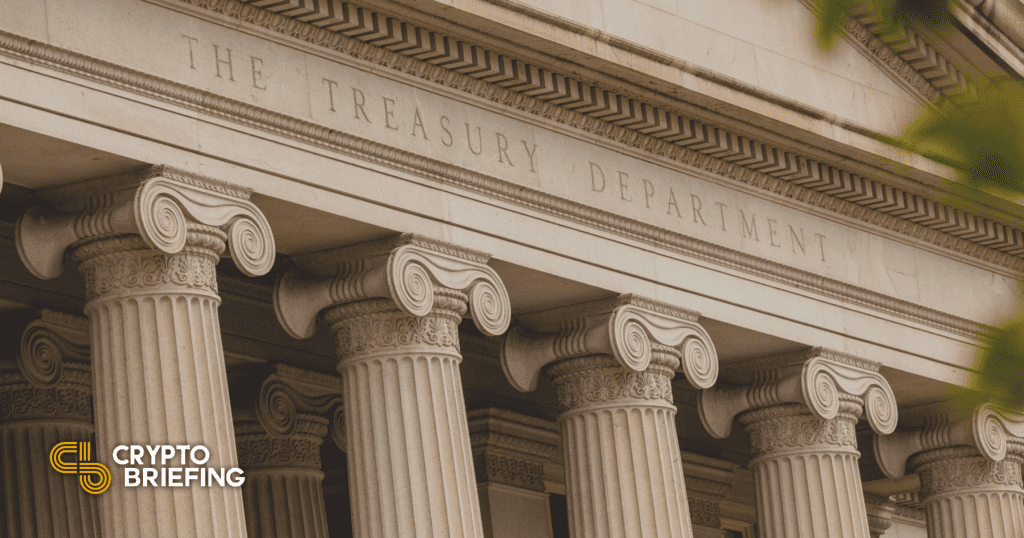
Shutterstock photo by christianthiel.net
Treasury Weighs In on NFTs and Art Crime
The government body commented on money laundering and FATF regulations.
Wikipedia may not consider NFTs to be art, but the U.S. Treasury apparently does, and it has observed their role in art-related crime.
Treasury Warns of Money Laundering
The U.S. Treasury acknowledged NFT-based art today, focusing on money laundering and possible regulation of the sector.
The Department of the Treasury published a press release and report on illicit finance in high-value art markets, in which it took particular note of the emerging NFT sector and its capacity for money laundering.
The Treasury specifically warned that NFTs can be used in self-laundering, a practice in which users spend funds on an NFT that they already own in order to create obfuscated transaction trails on the blockchain.
This sort of money laundering was one explanation offered when a CryptoPunk NFT was sold for more than $500 million in October 2021.
The Treasury additionally warned that the NFT market currently lacks of standard and due diligence and no central body. It argued that this can “create perverse incentives,” as automated and rapid NFTs sales can encourage money laundering. It noted that, by contrast, experts in the traditional art and auction industries tend to conduct their business much more carefully, with several institutional safeguards in place.
Further, the Treasury expressed the concern that “the incentive to transact can potentially be higher than the incentive to verify the identity of the buyer of the work.”
The Treasury did not directly address the issue of NFTs based on plagiarized media, which has been a growing issue. Nor did it address phishing scams, another frequent problem for NFT owners.
NFTs Could Fall Under VASP Rules
The Treasury observed that NFTs have moved a significant amount of value recently. It said that NFTs saw $1.5 billion in trading volume in Q1 2021—a 2,627% increase over the last quarter.
The government body also noted that NFTs that are used for payments and investments could be defined as virtual assets. As such, companies that create or transact NFTs could be considered a Virtual Asset Service Provider (VASP) and subject to regulation under Financial Action Task Force (FATF) rules.
It added that NFT platforms such as Dapper Labs, SuperRare, OpenSea, and art houses could fall under these rules “depending on the nature and characteristics of the NFTs offered.”
The Treasury also acknowledged that NFTs that primarily serve as collectibles “are generally not considered to be virtual assets.”
Guidance released by the FATF last October similarly suggested that NFTs could be considered virtual assets if they are used for payments, but otherwise fall outside that definition.
Disclosure: At the time of writing, the author of this piece owned BTC, ETH, and other cryptocurrencies.
